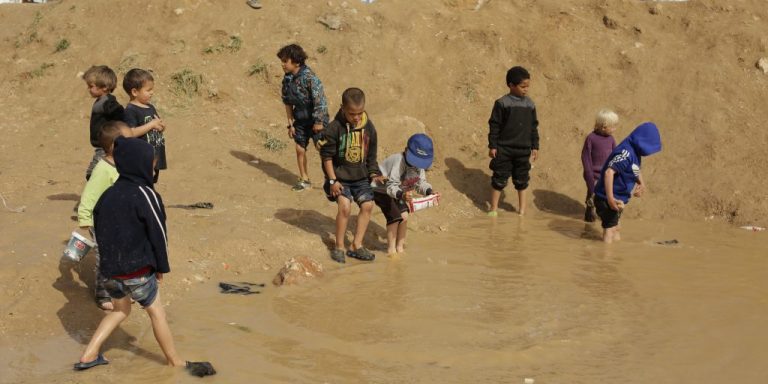INTELBRIEF
June 23, 2020
IntelBrief: Will Western Nations Ever Repatriate Their Citizens in Syria and Iraq?

- Over the course of the past several weeks, more Western nations have taken steps to repatriate their citizens and children of Islamic State fighters or their family members who may have been born in the caliphate.
- Foreigners, many from European countries, continue to languish in squalid detention camps in northeastern Syria, where experts have continuously warned about the physical, mental, and emotional trauma of those being held, with children particularly vulnerable.
- But with many Western nations insisting that those who committed crimes be tried in the countries where these crimes were committed—primarily Syria and Iraq—the back-and-forth continues.
- Several recent analyses suggest that those who do return to their countries of origin after leaving the caliphate look back upon the Islamic State with a combination of despair and disillusionment.
Over the course of the past several weeks, more Western nations have taken steps to repatriate their citizens and children of Islamic State fighters or their family members who may have been born in the caliphate. France took steps to repatriate ten children, some of whom were orphans, while others were apparently repatriated with the consent of their mothers. Several hundred French children remain in detention camps in Syria. In The Netherlands, the Dutch Minister of Justice and Security suggested that, on balance, the importance of bringing home Dutch citizens to prosecute them in the Netherlands outweighed potential risks to national security. Whether or not this signals a broader change in Western countries’ approach to repatriating their citizens is yet to be seen, but hundreds of children remain in these camps, awaiting their fate. For some of the orphans in these camps, their relatives in the West are enmeshed in an ongoing and cumbersome legal battle to bring them back home. Grandparents and other relatives, many with limited resources, are left to navigate complicated legal bureaucracies for years, with minimal assistance or guidance on how to proceed.
Foreigners, many from European countries, continue to languish in squalid detention camps in northeastern Syria, where experts have continuously warned about the physical, mental, and emotional trauma of those being held, with children particularly vulnerable. Within the camps there are often shortages of food and water, disease is rampant, and children have little access to education. If the coronavirus reaches the camp and begins to spread, the consequences will be devastating. The Kurdish fighters tasked with running the detention camps have repeatedly called for countries to take back their citizens. There have been countries that have adopted a more proactive approach—Kosovo, Turkey, Russia, Kazakhstan, and Uzbekistan—have each repatriated significant numbers of their citizens, prioritizing women and children.
But with many Western nations insisting that those who committed crimes be tried in the countries where these crimes were committed—primarily Syria and Iraq—the back-and-forth continues. Western countries have decried the complications of prosecuting their citizens, citing a lack of battlefield evidence, or in cases where individuals are prosecuted and sentenced, the challenge of relatively short prison sentences. In general, male detainees, especially those suspected of playing a direct role in fighting for the Islamic State, are considered high risk and many countries are reluctant to bring these individuals back home, concerned about terrorism and radicalization. High-profile terrorist attacks by Islamic State members in Paris in November 2015 and Brussels in March 2016 have left an indelible mark in the minds of many European policymakers and security services.
But recent research, including work by terrorism expert Thomas Renard, indicates that the threat is perhaps slightly less dire than many initially believed. More often than not, those who do return to their countries of origin after leaving the caliphate look back upon the Islamic State with a combination of despair and disillusionment. To be clear, there is still a real and tangible threat posed by individuals who are susceptible to the siren call of jihadist propaganda. But this has always been the case. Interestingly, although with some exceptions, the threat posed by those who never left, and thus never experienced the horrors of the caliphate, could be more significant than from those who left home to fight with the Islamic State before returning home. With a rise in right-wing extremism throughout Europe, and the complications related to COVID-19 exacerbating budget shortfalls and other resource issues, law enforcement agencies and security services will not be able to focus as intently on countering jihadist-related violence. Even so, leaving one’s citizens as ‘stateless’ almost guarantees that these individuals will have no other options but to consider themselves citizens of the Islamic State. European and other Western nations should strongly reconsider their stance on repatriation and, despite the challenges involved, bring home their citizens to break the cycle of extremism and radicalization and demonstrate their commitment to justice.
.
For tailored research and analysis, please contact: info@thesoufancenter.org